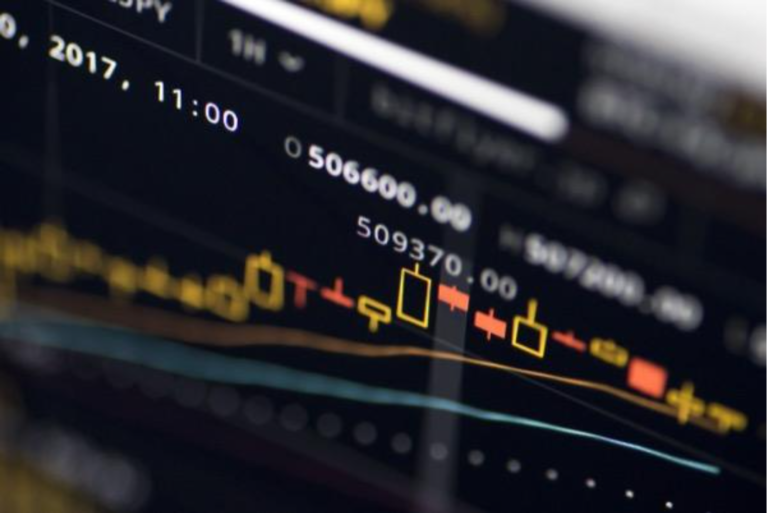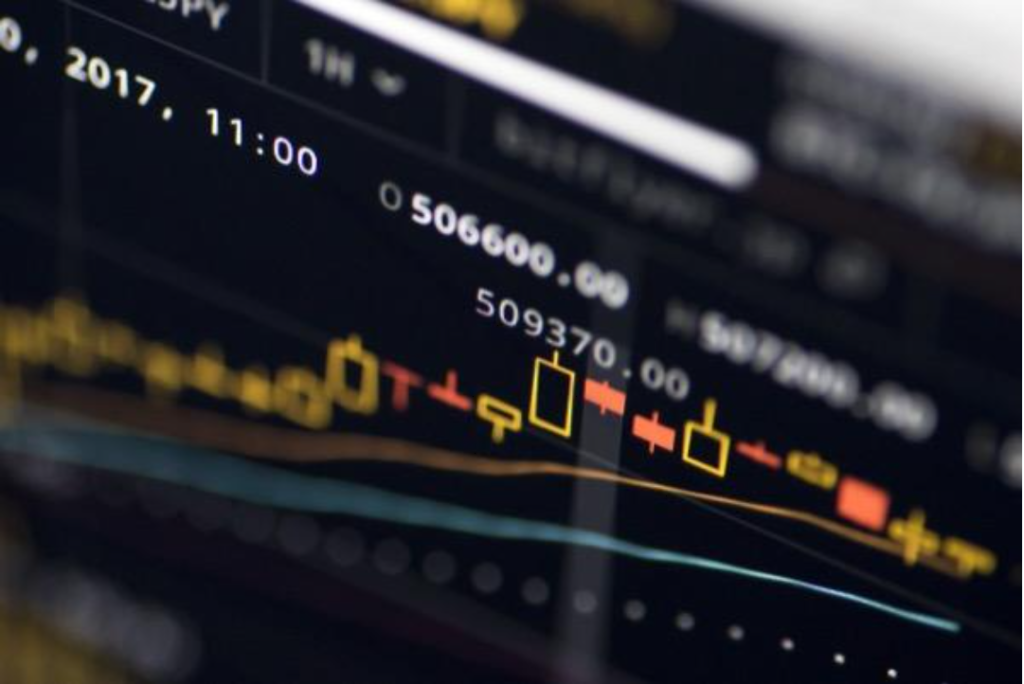
Day trading is the practice of buying and selling financial instruments within the same trading day, with the goal of profiting from small price movements. It is a popular trading strategy that can be highly profitable but also involves significant risk. If you’re a beginner looking to get started with day trading, this comprehensive guide will provide you with the information and resources you need to get started.
Step 1: Understand the Risks and Benefits of Day Trading
Before you start day trading, it’s important to understand the risks and benefits of this trading strategy. Day trading can be highly profitable, but it also involves significant risk. Day traders need to be disciplined, patient, and have a solid understanding of technical analysis, market trends, and risk management.
Benefits of Day Trading:
Potential for high profits
Flexibility to work from anywhere
Opportunity to make quick decisions
Risks of Day Trading:
High risk of losses
Need for discipline and patience
Stressful and demanding
Step 2: Learn the Basics of Day Trading
To become a successful day trader, you need to have a solid understanding of the basics of day trading. This includes understanding technical analysis, market trends, and trading strategies. Here are some of the basic concepts you need to understand:
Technical Analysis: Technical analysis involves using charts and indicators to identify patterns in market trends and price movements. Technical analysis can help you identify entry and exit points for trades and help you make more informed trading decisions.
Market Trends: Understanding market trends is essential for day traders. Trends can help you identify when to enter or exit a trade and can help you make more profitable trades.
Trading Strategies: Day traders use a variety of trading strategies to make profitable trades, including scalping, trend trading, and momentum trading. It’s important to understand the different trading strategies and choose one that suits your trading style and risk tolerance.
Step 3: Choose a Trading Platform and Practice with a Demo Account
Once you have a basic understanding of day trading, you need to choose a trading platform and practice with a demo account. A demo account allows you to practice trading with virtual money, so you can get a feel for the platform and test out your trading strategies before risking real money.
When choosing a trading platform, look for one that offers a user-friendly interface, a wide range of trading instruments, and low fees. Some popular trading platforms for day traders include IQ Option, Olymp Trade, and Quotex.
Step 4: Develop a Trading Plan and Stick to It
One of the most important things you can do as a day trader is to develop a trading plan and stick to it. A trading plan should outline your trading strategy, risk management strategies, and entry and exit points for trades.
Your trading plan should also include your risk tolerance, which is the amount of money you’re willing to risk on each trade. It’s important to have a solid understanding of risk management and to never risk more money than you can afford to lose.
Step 5: Keep Learning and Improving
Day trading is a complex and constantly evolving field, so it’s important to keep learning and improving your skills as a trader. This can include reading trading books and blogs, attending trading seminars and webinars, and participating in trading communities.
It’s also important to keep track of your trades and analyze your performance regularly. This can help you identify your strengths and weaknesses as a trader and make adjustments to your trading plan accordingly.

Sure, here are some additional points that beginners should keep in mind when starting day trading:
Start Small: It’s important to start with a small amount of money when beginning day trading. This will help you minimize your losses and avoid big risks that could potentially wipe out your account.
Manage Your Emotions: Day trading can be a stressful and emotional experience, especially for beginners. It’s important to manage your emotions and avoid making impulsive trading decisions based on fear or greed.
Use Stop Losses: Stop losses are an important risk management tool that can help you minimize your losses. A stop loss is a predetermined point at which you will exit a trade if the market moves against you.
Avoid Overtrading: Overtrading is a common mistake that many beginners make. It’s important to avoid overtrading and only take trades that meet your trading plan’s criteria.
Keep a Trading Journal: Keeping a trading journal can help you track your trades, identify patterns in your trading, and make adjustments to your trading plan accordingly.
Remember, day trading requires a lot of discipline and patience, but it can also be a highly rewarding and profitable trading strategy if done correctly. By following these tips and continuously learning and improving your skills, you can increase your chances of success as a day trader.
Here are some frequently asked questions (FAQs) about day trading for beginners:
- What is day trading?
Day trading is a trading strategy that involves buying and selling financial instruments, such as stocks, currencies, or futures, within the same trading day. Day traders aim to profit from small price movements in the market by taking advantage of short-term price fluctuations. - Do I need any special qualifications to become a day trader?
No, you don’t need any specific qualifications to become a day trader. However, it’s important to have a good understanding of the markets you are trading and to continuously educate yourself about trading strategies and techniques. - How much money do I need to start day trading?
There is no set amount of money you need to start day trading, but it’s recommended to start with a small amount and gradually increase your capital as you gain more experience and confidence. Some brokers may require a minimum deposit to open a trading account, so be sure to research the requirements of the broker you choose. - What are some common day trading strategies?
There are many different day trading strategies, including trend following, scalping, and range trading. Each strategy has its own advantages and disadvantages, and it’s important to find a strategy that fits your trading style and risk tolerance. - How do I manage risk when day trading?
Risk management is an important aspect of day trading. One way to manage risk is by using stop-loss orders, which can limit your losses if the market moves against you. It’s also important to have a trading plan and to stick to it, and to avoid taking on too much risk by using leverage or overtrading. - Can I make a living from day trading?
While it’s possible to make a living from day trading, it’s important to remember that it requires a lot of discipline, hard work, and patience. Many traders fail in their first year of trading, and success often requires years of experience and dedication. - What are some common mistakes to avoid when day trading?
Some common mistakes to avoid when day trading include overtrading, not having a trading plan, not using stop-loss orders, and letting emotions drive your trading decisions. It’s important to have a clear strategy and to stick to it, and to continuously educate yourself and learn from your mistakes. - How can I get started with day trading?
To get started with day trading, you’ll need to open a trading account with a reputable broker and fund it with capital. You’ll also need to develop a trading plan and strategy, and continuously educate yourself about the markets and trading techniques. It’s important to start with a small amount of money and to gradually increase your capital as you gain more experience and confidence. - What tools and software do I need for day trading?
You’ll need a trading platform, which is software that allows you to place trades and view market data. Many brokers provide their own trading platforms, but there are also third-party platforms available. You may also want to use charting software to help you analyze market data and identify trading opportunities. - What are the risks of day trading?
Day trading can be a high-risk activity, and it’s important to be aware of the risks involved. Some of the risks of day trading include losing money, market volatility, technical problems with trading platforms, and emotional stress. - How can I learn more about day trading?
There are many resources available for learning about day trading, including books, online courses, and trading forums. It’s important to continuously educate yourself and stay up-to-date with market news and trends. - Can I trade from home or do I need to work for a trading firm?
You can trade from home as an independent trader, but you may also choose to work for a trading firm. Working for a trading firm can provide you with access to resources and support that may not be available to independent traders. - How do taxes work for day traders?
Taxes for day traders can be complex, and it’s important to consult with a tax professional to ensure that you are complying with all applicable tax laws. In the United States, day traders are subject to capital gains taxes on their profits. - How much time do I need to spend on day trading?
The amount of time you need to spend on day trading will depend on your trading strategy and the amount of capital you are trading with. Some traders may spend several hours a day monitoring the markets and placing trades, while others may only spend a few minutes a day. - Can I trade any financial instrument as a day trader?
Day traders can trade a variety of financial instruments, including stocks, currencies, futures, options, and cryptocurrencies. It’s important to choose instruments that fit your trading strategy and risk tolerance.